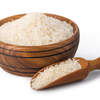Oat Milk vs. Almond Milk: Which Is Better?

Milk alternatives have gained immense popularity in recent years, catering to a variety of dietary needs, ethical concerns, and environmental considerations. Among the most popular plant-based milk choices, oat milk and almond milk stand out as two of the top contenders. While both offer unique benefits and drawbacks, choosing between oat milk and almond milk depends on personal preferences, dietary requirements, and sustainability concerns. In this comprehensive comparison, we will explore the nutritional profiles, environmental impact, taste, texture, and usability of oat milk and almond milk to help you determine which is the better option for you.
Nutritional Comparison
One of the primary factors in choosing between oat milk and almond milk is their nutritional value. Both options cater to different dietary needs and can complement a balanced diet in unique ways.
Calories and Macronutrients
-
Oat Milk: Oat milk is generally higher in calories compared to almond milk. A typical serving (one cup) contains around 120-150 calories, depending on the brand and whether it is sweetened or unsweetened. Oat milk also contains a good amount of carbohydrates, primarily from oats, providing 15-25 grams per serving.
-
Almond Milk: Almond milk, on the other hand, is significantly lower in calories, with unsweetened versions containing as little as 30-50 calories per cup. It has minimal carbohydrates and a higher fat content, although the fat is mostly healthy monounsaturated fats.
Protein Content
-
Oat Milk: Oat milk contains around 3 grams of protein per cup, which is higher than almond milk but still lower than cow's milk or soy milk.
-
Almond Milk: Almond milk is relatively low in protein, typically containing just 1 gram per cup. This makes it less ideal for individuals seeking a high-protein plant-based milk alternative.
Vitamins and Minerals
Both oat milk and almond milk are often fortified with vitamins and minerals to enhance their nutritional profile.
-
Oat Milk: Naturally rich in B vitamins, oat milk is often fortified with calcium, vitamin D, and vitamin B12, making it a good option for those on a vegan diet.
-
Almond Milk: Almond milk is typically fortified with similar nutrients, particularly calcium and vitamin D, though it may naturally contain small amounts of vitamin E, an antioxidant beneficial for skin and immune health.
Health Benefits
-
Oat Milk: Rich in soluble fiber, particularly beta-glucan, oat milk supports heart health by helping to lower bad cholesterol levels. Its fiber content also aids digestion and promotes a feeling of fullness, which can be beneficial for weight management.
-
Almond Milk: Low in calories, especially in unsweetened forms, almond milk is suitable for those monitoring their calorie intake. Its high vitamin E content offers antioxidant properties, supporting skin health and protecting against oxidative stress.
Environmental Impact
Sustainability is a growing concern for consumers choosing plant-based alternatives, and both oat milk and almond milk have environmental benefits and drawbacks.
-
Oat Milk: Oat milk is considered one of the most sustainable milk alternatives. Oats require significantly less water than almonds and produce a lower carbon footprint compared to dairy milk. Additionally, oat farming does not contribute as heavily to deforestation.
-
Almond Milk: Almond milk, while better than dairy milk in terms of carbon footprint, has been criticized for its water consumption. Growing almonds requires a large amount of water, particularly in regions like California, where most commercial almond farming takes place.
Taste and Texture
The taste and texture of plant-based milk are important factors for many consumers, as they influence how well the milk pairs with coffee, cereal, or cooking.
-
Oat Milk: Oat milk has a naturally creamy and smooth texture, making it an excellent choice for coffee, lattes, and baking. It has a mild sweetness that enhances its overall flavor.
-
Almond Milk: Almond milk has a much lighter and watery texture, which some people prefer for drinking straight or adding to smoothies. However, it may not be as creamy in coffee or baking applications.
Usability in Daily Life
How well oat milk and almond milk perform in different culinary applications is another key consideration.
-
Oat Milk: Due to its creaminess, oat milk is an excellent choice for making frothy coffee drinks, baking, and adding to cereal.
-
Almond Milk: Almond milk’s light consistency makes it better suited for drinking straight, making smoothies, or using in recipes that require a thinner liquid.
Allergies and Dietary Restrictions
-
Oat Milk: Oat milk is naturally free from nuts, making it a safer option for those with nut allergies. However, it does contain gluten unless specifically labeled as gluten-free.
-
Almond Milk: Almond milk is naturally gluten-free but is not suitable for those with nut allergies.
Which One Should You Choose?
The decision between oat milk and almond milk ultimately comes down to personal preferences and priorities:
-
Choose Oat Milk If: You prefer a creamier texture, need a nut-free option, or prioritize sustainability.
-
Choose Almond Milk If: You are looking for a low-calorie option with a light texture and don’t have nut allergies.
Conclusion: Buniyaa – Buy Indian Grocery Online in the USA
If you are looking for high-quality oat milk, almond milk, or other plant-based grocery essentials, Buniyaa is your one-stop destination for buying Indian groceries online in the USA. Buniyaa offers a wide selection of dairy alternatives, including popular oat and almond milk brands, along with essential pantry staples, snacks, and spices. Shopping with Buniyaa ensures that you get premium quality products delivered straight to your doorstep with convenience and reliability. Explore Buniyaa today to stock up on all your favorite groceries with ease!




